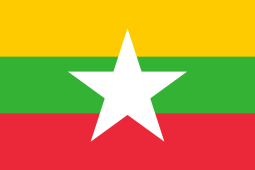 8 November 2021. The military regime running Myanmar adopted amendments to the country’s formerly progressive Broadcasting Law on 1 November 2021. Adopted without any public consultations, the amendments make profound changes to the scope of the law so that it defines various online activities as “broadcasting”. They also add imprisonment as a sentence to the key offences in the Law, which had formerly just been subject to administrative fines. The Centre for Law and Democracy (CLD) is today releasing its Analysis of the Second Amendment of the Broadcasting Law, which provides a detailed assessment of the impact of the amendments and how they breach international human rights guarantees.
8 November 2021. The military regime running Myanmar adopted amendments to the country’s formerly progressive Broadcasting Law on 1 November 2021. Adopted without any public consultations, the amendments make profound changes to the scope of the law so that it defines various online activities as “broadcasting”. They also add imprisonment as a sentence to the key offences in the Law, which had formerly just been subject to administrative fines. The Centre for Law and Democracy (CLD) is today releasing its Analysis of the Second Amendment of the Broadcasting Law, which provides a detailed assessment of the impact of the amendments and how they breach international human rights guarantees.
“When one considers the amendments as a package, it is hard to avoid the conclusion that the real aim is to criminalise online behaviour which is critical of the military regime,” said Toby Mendel, Executive Director of CLD. “If so, these amendments represent yet one more measure by the regime to control freedom of expression in the country.”
All of the amendments breach various human rights guarantees, including those relating to freedom of expression and criminal due process. The Broadcasting Law now defines as “broadcasting” the use of “any other technology for the people to directly catch the television and radio programmes” while the former exclusion of Internet-based broadcasting has been removed. Because this is so vague, and depending on how it is interpreted, the Law could now treat as broadcasting anything ranging from audio or video social media posts to personal websites to online actors that do resemble broadcasters. Given that broadcasting requires a licence under the Broadcasting Law, and that many other conditions are imposed on it, this expansion of the scope of its requirements is a clear breach of the right to freedom of expression.
The addition of prison sentences for a number of actions, such as broadcasting without a licence or once a licence has been suspended, effectively transforms these from administrative to criminal offences. The duration of prison sentences ranges from six months to five years and in each case involves minimum sentences (i.e. so that conviction will necessarily result in imprisonment of at least a given duration, which varies from six months to three years, depending on the offence). These harsh penalties represent a breach not only of freedom of expression but also the right to liberty, protection against cruel and unusual punishment and criminal due process rights.
CLD’s Analysis of the Amendments is available here in Burmese and in English.
For further information, please contact:
Toby Mendel
Executive Director
Centre for Law and Democracy
Email: toby@law-democracy.org
+1 902 431-3688
www.law-democracy.org
twitter: @law_democracy



